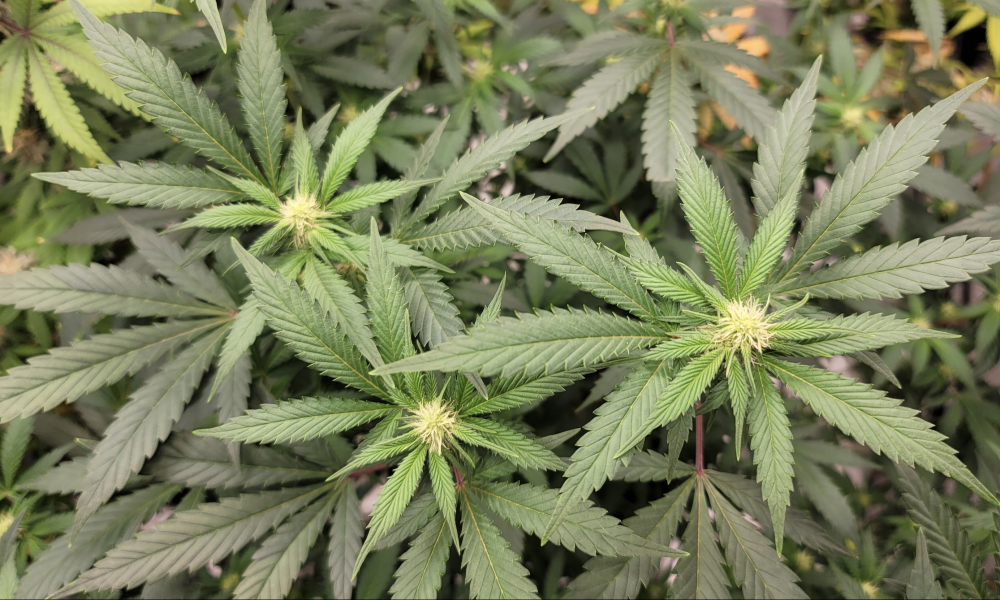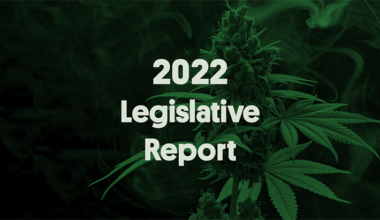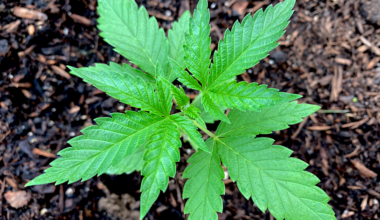Arkansas voters are poised to see a marijuana legalization initiative on the state’s November ballot, with activists on Friday turning in what they say are more than double the required signatures to qualify the measure.
Responsible Growth Arkansas submitted just over 190,000 signatures to the secretary of state’s office for the constitutional amendment, which would allow adults 21 and older to purchase and possess up to an ounce of cannabis from licensed retailers.
They just need 89,151 valid signatures to qualify for ballot placement.
Steve Lancaster, a spokesperson for the campaign, told Marijuana Moment in a phone interview on Thursday that the sheer volume of signatures that activists were able to collect, as well as the results of their independent review of the validity of those petitions, gives them great confidence that “we’re going to be well in excess of what we need to get on the ballot—so we’re very excited about that.”
The state has about two weeks to verify the signatures. In the event that the campaign falls short but turns in at least 75 percent of the valid signatures, it would be given an additional 30 days to make up the difference.
Advocates with Responsible Growth Arkansas loaded up about 350 boxes of signed petitions on Friday to deliver to the secretary of state’s office. It’s the fruit of an onerous labor that Arkansas statutes imposes on citizens seeking to changes laws through the ballot, Lancaster said.
NEW: The group hoping to legalize adult use of recreational marijuana, Responsible Growth Arkansas, has submitted more than 190,000 signatures to the Secretary of State. Signatures & ballot title will need to be certified before it’s placed on the November ballot. #arnews #arpx pic.twitter.com/1UjIKQXU4n
— Marine Glisovic KATV (@KATVMarine) July 8, 2022
“It’s a real accomplishment for the people who were out there gathering signatures,” he said. “But more importantly, we think that it really shows a lot of broad support for this initiative,” especially considering the geographic and political diversity of people who signed up to put the issue of legalization before voters.
Responsible Growth Arkansas is just one of several campaigns that have pursued cannabis reform through the ballot this year, though backers of competing initiatives have since acknowledged they won’t be able to collect enough signatures to qualify this year. So far, no other cannabis legalization campaigns have publicized signature submissions by the Friday deadline.
Meanwhile, supporters of the separate campaigns, Arkansas True Grass and Arkansans for Marijuana Reform, have raised concerns with the provisions of the Responsible Growth Arkansas initiative, suggesting it would favor big businesses in the existing medical cannabis industry. Some have said they may look to 2024 to try again with their own approaches.
Lancaster said that the campaign hopes that won’t be necessary. They feel that the constitutional amendment provides a sound infrastructure for reform that prioritizes regulations—and the plan is to push for further reforms in the legislature if voters approve legalization at the polls. That would include efforts to promote expungements, which isn’t addressed by the initiative.
Notably, unlike the other Arkansas campaigns, the measure from Responsible Growth Arkansas also doesn’t include a home grow option for adult consumers. The reasoning for that exclusion, Lancaster said, was that the organizers felt that providing home cultivation “would be divisive” among voters in the state.
Here’s what the campaign’s marijuana legalization initiative would accomplish:
-Adults 21 and older could purchase and possess up to one ounce of cannabis from licensed retailers.
-Home cultivation would not be allowed.
-The measure would make a series of changes to the state’s existing medical cannabis program that was approved by voters in 2016, including a repeal of residency requirements to qualify as a patient in the state.
-The state Alcoholic Beverage Control (ABC) Division of the Department of Finance and Administration would be responsible for regulating the program and issuing cannabis business licenses.
-Regulators would need to license existing medical cannabis dispensaries to also serve adult consumers, and also permit them to open another retail location for recreational marijuana sales only. A lottery system would award licenses for 40 additional adult-use retailers.
-There are no provisions to expunge or seal past criminal records for marijuana or to provide specific social equity licensing opportunities for people from communities harmed by the war on drugs.
-The state could impose up to a 10 percent supplemental tax on recreational cannabis sales, in addition to the existing state and local sales tax.
-Tax revenue would be divided up between law enforcement (15 percent), the University of Arkansas for Medical Sciences (10 percent) and the state drug court program (five percent). The remaining revenue would go to the state general fund.
-People who own less than five percent of a marijuana businesses would no longer be subject to background checks.
-The legislature could not repeal of amend the state’s medical marijuana statutes without voter approval.
-Local governments could hold elections to prohibit adult-use retailers in their jurisdiction if voters approve the decision.
-Individuals could now own stake in more than 18 dispensaries.
-There would be advertising and packaging restrictions, including a requirement that marijuana products must be sold in tamper-resistant packages.
-Dispensaries would be able to cultivate and store up to 100 seedings, instead of 50 as prescribed under the current medical cannabis law.
A former Arkansas Democratic House minority leader, Eddie Armstrong, is behind the Responsible Growth Arkansas constitutional amendment, which he filed in January.
—
Marijuana Moment is tracking more than 1,500 cannabis, psychedelics and drug policy bills in state legislatures and Congress this year. Patreon supporters pledging at least $25/month get access to our interactive maps, charts and hearing calendar so they don’t miss any developments.![]()
Learn more about our marijuana bill tracker and become a supporter on Patreon to get access.
—
“We’re trying to present a responsible alternative” to prohibition, Lancaster said. “We think that this is a product that the majority of Arkansans want, and we’re trying to do it in a responsible way that recognizes that the state has a role in regulating how this is sold and manufactured. We’re trying to meet all of those goals.”
Meanwhile, a poll released in February found that 54 percent of Arkansans favor full adult-use legalization, compared to 32 percent who said it should be legal for medical use only and just around 11 percent who said it should be outright illegal.
Here’s the state of play for other drug policy reform ballot measures in 2022:
Oklahoma activists said on Tuesday that they’ve submitted what they believe to be more than enough signatures to qualify a marijuana legalization initiative for the November ballot.
Maryland lawmakers passed legislation this year, which the governor allowed to go into effect without his signature, that will put the issue of cannabis legalization before voters this November.
In May, South Dakota officials certified that activists turned in a sufficient number of signatures to qualify a marijuana legalization measure for the November ballot.
Advocates in Missouri have turned in more than double the amount of signatures needed to qualify a marijuana legalization initiative for the ballot.
Nebraska advocates submitted signatures for a pair of medical cannabis legalization initiatives. The campaign has faced several challenges along the way, including the loss of critical funding after a key donor passed away and a court battle of the state’s geographic requirements for ballot petitions.
North Dakota activists recently cleared a procedural hurdle to start collecting signatures for a ballot initiative to legalize marijuana in the state.
Colorado activists announced in June that they have submitted what they believe to be more than enough signatures to place a measure on the state’s ballot that would legalize psychedelics and create licensed psilocybin “healing centers” where people can use the substance for therapeutic purposes. A competing psychedelic reform campaign is still gathering signatures for a competing, more simplified measure.
An initiative to legalize marijuana will not appear on Ohio’s November ballot, the campaign behind the measure announced in May. But activists did reach a settlement with state officials in a legal challenge that will give them a chance to hit the ground running in 2023.
Michigan activists announced in June that they will no longer be pursuing a statewide psychedelics legalization ballot initiative for this year’s election and will instead focus on qualifying the measure to go before voters in 2024.
The campaign behind an effort to decriminalize drugs and expand treatment and recovery services in Washington State said in June that it has halted its push to qualify an initiative for November’s ballot.
While Wyoming activists said earlier this year that they made solid progress in collecting signatures for a pair of ballot initiatives to decriminalize marijuana possession and legalize medical cannabis, they didn’t get enough to make the 2022 ballot deadline and will be aiming for 2024 while simultaneously pushing the legislature to advance reform even sooner.
In March, California activists announced that they came up short on collecting enough signatures to qualify a measure to legalize psilocybin mushrooms for the state’s November ballot, though they aren’t giving up on a future election cycle bid.
Meanwhile, there are various local reforms that activists want to see voters decide on this November—including local marijuana decriminalization ordinances in Ohio, West Virginia and Texas.
Photo courtesy of Mike Latimer.
Medical Disclaimer:
The information provided in these blog posts is intended for general informational and educational purposes only. It is not a substitute for professional medical advice, diagnosis, or treatment. Always seek the advice of your physician or other qualified healthcare provider with any questions you may have regarding a medical condition. The use of any information provided in these blog posts is solely at your own risk. The authors and the website do not recommend or endorse any specific products, treatments, or procedures mentioned. Reliance on any information in these blog posts is solely at your own discretion.







